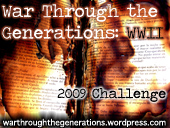genre: non-fiction/self-help
It's hard for me to summarize this book. I would have never (ever) picked it up if my book club hadn't chosen it but I am finding that every once and a while, reading books that make me think a little deeper about my inner-workings is a good thing, even if I wouldn't choose it for myself.
Here is my takeaway: we cannot live our fullest life and be our most authentic self if we are more concerned about what people think of us (or what we think people are thinking of us) than we are about being true to what our soul really needs. She writes about "guideposts," these core essential ideas that will help us live "wholeheartedly" - and in all her research, and she IS an academic as opposed to a spiritual/religious leader, she has found that people who are living wholeheartedly are people who are at peace with themselves and the world around them.
I can tell that a lot of her ideas resonated with me because as I look at my list of "notes" in my Kindle, it's surprisingly long. Here are some things that I want to remember:
"Wholehearted living is about engaging in our lives from a place of worthiness."
"The most dangerous thing to do after a shaming experience is to hide or bury our story."
"Setting boundaries and holding people accountable is a lot more work than shaming and blaming."
"Life-paralysis refers to all the opportunities we miss because we're too afraid to put anything out into the world that could be imperfect. It's also all of the dreams that we don't follow because of our deep fear of failing, making mistakes, and disappointing others. It's terrifying to risk when you're a perfectionist; your self-worth is on the line."
That last one, particularly, struck a chord. I can think of many, specific things that I have given up on because of my fear of failing. I do often put myself out there but for a few really big things, I've let my perfectionism be more important than my dreams and I don't want to live that way. Another thought that stuck is the idea that we are given gifts from allowing ourselves to be vulnerable and imperfect - when we share our shame with others, we are creating deep and lasting connections, which is indeed a gift.
This book is a super fast read - and probably is better taken in chunks at a time, honestly, focusing on one idea then moving onto the next, but her style is very readable and I like the mix of research and anecdote. I'm glad I read it.
Thursday, January 14, 2016
Subscribe to:
Post Comments (Atom)

































No comments:
Post a Comment